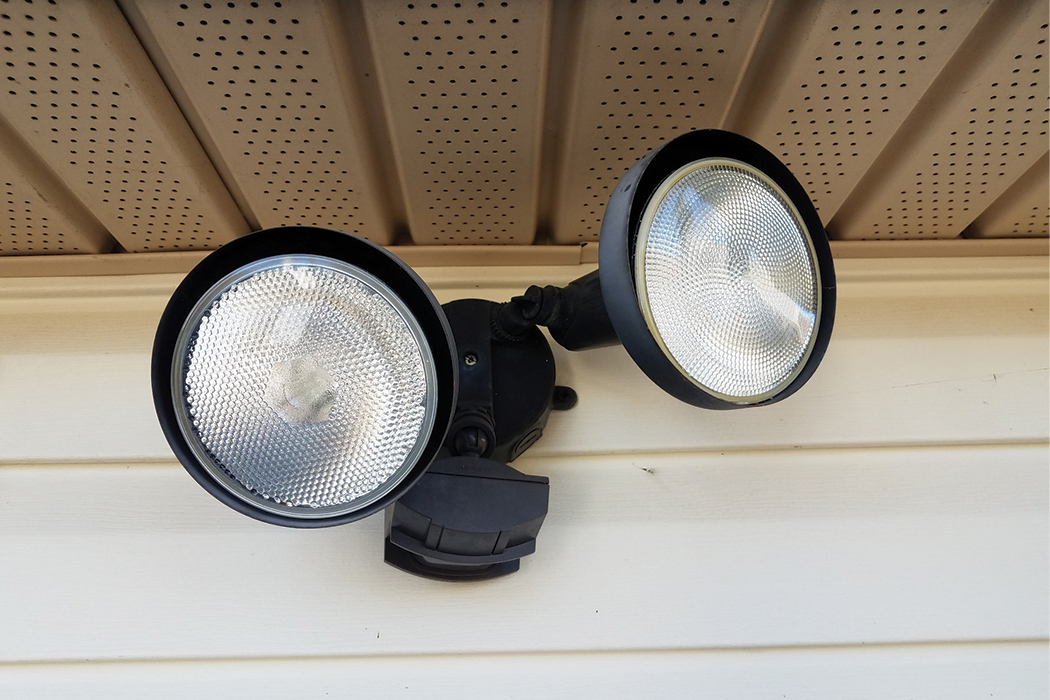Where to Place a Home Security DVR System

Being vigilant in protecting your home 24/7 requires more than a quick reaction time, and for that reason, no one person can do it alone. Having a home security system equipped with surveillance equipment, such as modern-day security cameras which include two-way communications, can be like having a second set of eyes that never need to blink.
Since security cameras can have video analytics that differentiate between people, pets, vehicles, and package deliveries, you can set up notifications on your mobile device so that you are only alerted to important events and do not have to constantly be on guard.
Going back to look at your stored videos is one of the main features of security cameras, and this guide intends to help you decide where to place a home security Digital Video Recorder (DVR) system.
Where to Place a Home Security DVR System
For those with IP cameras — systems that are stored and operated via the cloud — they don’t have to worry about their entire systems being compromised by a burglar who cuts a few wires or destroys a system.
Open Source IP cameras can be more susceptible to hacking. Older closed-circuit television surveillance systems may be more subject to sabotage. So, you should consider this when deciding where best to place equipment.
Analog systems were those older surveillance systems connected to a VCR recording on looped video cassettes. DVRs are newer to home security systems that have replaced analog recordings. These systems often have higher-quality video and a lower level of maintenance. Unlike IP cameras, DVR systems do not connect to the internet.
DVRs are closed circuit systems, which means they are only connected locally and not to any networks. This requires that the DVR piece of the system needs to remain intact to be useful. To be sure that you can successfully retrieve data from a DVR, should it be necessary, it is recommended that the device be hidden from plain view while still being accessible to proper wiring for optimal video quality.
Most people now have IP cameras connected to their home security system that can stream directly to the internet and be checked from anywhere; however, if you do decide to go with a closed-system DVR, here are some places people commonly put them.
The Hiding Places
Closets
A closet is the safest hiding place for a DVR system, since closets will often serve as a structured wiring center for your home, and you’ll have a few options with the various closets in the house. Plus, you can place items on top or around your DVR to further conceal it, just be mindful of the ventilation requirements needed for your particular device to minimize the risk of components overheating.
Whether you choose the master bedroom closet, an office closet, or another option, you are sure to find somewhere in the home that will afford you the hiding that you need. Be sure that you place it somewhere high in the closet and hide well any wires that may lead to it.
Cupboards
Other high shelves or cupboards are great hiding spots for DVR systems, as these would not likely be an area of interest to a typical burglar since they are unlikely to contain valuables. Maybe select a cupboard in the kitchen, or a central location like the living room that houses other important home materials as well.
Cupboards also work because they are often difficult to reach, and since burglars want to get in and out, the longer they have to spend in a home, the less they’ll want to tamper with devices.
Create a Space
This could mean you place the device in a hidden wall or a crawl space or placing it in its own unique room. You can get creative with the placement and put your DVR in a safe place that won’t be likely found.
Include a Lockbox
Regardless of the location you choose, try to secure the device by locking it in a safe, lockbox, or other concealable tool. Since these DVR systems will likely generate heat, any place you choose must allow for a heat ventilation system. Additionally, you’ll need to have a port for wires.
Using Professional Monitoring
It’s smart to take precautions when placing a DVR that is part of your home security plan, but a better defense of your home’s integrity may be to use a professional monitoring company. With Brinks Home™, your property will be monitored 24/7, backed by an award-winning Alarm Response Center.
Furthermore, Brinks Home offers professional installation for devices that integrate with an array of home security systems and peripheral devices to ensure compatibility and effectiveness. Videos recorded through our promoted devices are uploaded to cloud storage, meaning there are no DVR boxes to hide, shield, or connect wire up aside from a power supply to ensure network connectivity. If you are interested in learning more about these devices and services, please contact us today to receive a FREE quote.



